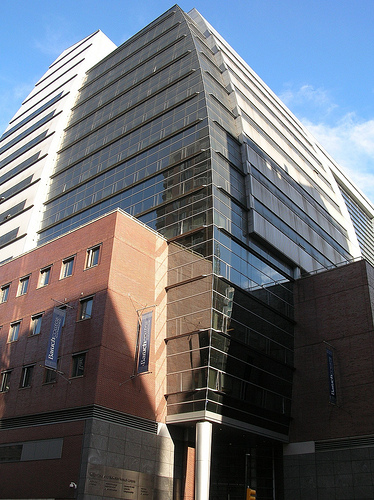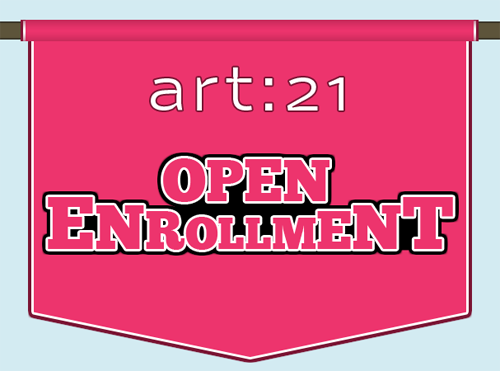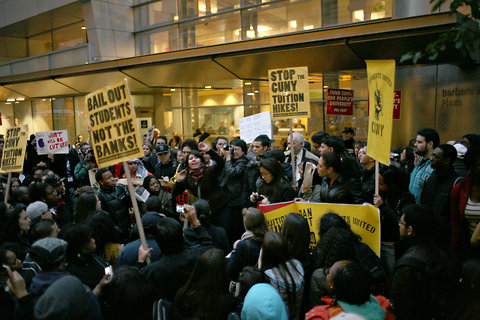“First my father and my mother—both immigrants newly arrived on these shores—and then I and my late brother, Joseph, as well as many of the people who would become my colleagues, all attended Downtown City, earning degrees and setting the stage for productive careers in business. I’m grateful for what this school, now Baruch, has given me, and I welcome the opportunity to help to do the same for a new generation of young people.” – William Newman, Baruch College ‘47
“My parents, like the parents of many of today’s students, were immigrants. Their dream was that I could be a mail carrier or schoolteacher. Baruch showed me a much wider world. It gave me both the education and the self-confidence to create for myself and my family a future I could never have imagined. For me, this opportunity to give back to Baruch College is both a privilege and an obligation.”
—Lawrence N. Field, Baruch College ‘52
Much of the good that has happened in my life came about as a result of the education I received at Brooklyn College and Larry received at Baruch. The City University did us a great favor at a time when we needed it. It is a privilege to return the favor.”
—Carol Zicklin, Brooklyn College ’61 (her husband, Lawrence Zicklin, Baruch College ’57)
In 2001, with a donation of $25 million, William Newman built and opened the vertical campus that I enter each week as a Graduate Teaching Fellow in the CUNY system. I walk past his picture most days, his words etched beside it. The first time I read it, I got a lump in my throat. I’m an immigrant too, I thought. (My second response was pure Homer Simpson: I chose Art History. I’ll never make a fortune and endow anything. Doh!). Baruch’s original academic building at 17 Lexington Avenue, another place I walk past on a near-daily basis, just got a gift of $10 million from Lawrence N. Field in support of its future renovation. It’s an historically significant site: the location of the Free Academy, which opened in 1847 as America’s first free public institution of higher learning and the precursor to the later City University of New York. The majority of my students are business majors and spend much of their time plotting a perfect GPA in order to get into Baruch’s Zicklin School of Business, housed in a building endowed with an $18 million gift by Lawrence Zicklin in 1997.

The William and Anita Newman Vertical Campus at Baruch College, New York. Photo: Stephen Rees via Flickr.
There are a good few more personal histories where these came from (not least Bernard Baruch himself) proudly displayed on the Baruch website. All three men I’ve mentioned (and in some cases, their brothers, wives, and other family members) graduated from the city college system. The quotes above highlight their profound feelings of gratitude and privilege about the educational opportunity they were served. The other historical factor that unites them as Baruch alumni? Before 1975, the city college system was tuition-free. These men didn’t pay a cent in order to heartily grasp the opportunity of a leg-up in life. And so, as tuition protestors congregated in the lobby of Baruch this past Monday while I wrapped up teaching a class seven floors above, I wondered what Messers Newman, Field and Zicklin would think of the issues current students had come to air.
We might argue that such individual philanthropy is a poisoned chalice, with less-than-salubrious connections to banking, major corporations and real estate empires that make money by falling on the wrong side of the “99% vs. 1%”equation. We’d be right. Thus, my point here could go one of two ways: either we should shut Baruch down immediately because it’s produced (at the very least) three wildly successful and possibly megalomaniac business entrepreneurs. Or, we could recognize these men are giving back to a community that gave them a chance, and that their gifts to their alma mater are very specifically rooted in an ethos of unimpeded access to a free higher education. An ethos that is grossly threatened by the use of force against peaceful student protesters at Baruch, and on any other campus. An ethos that will be shattered by the imposition of a $300 increase in tuition fees across New York city colleges each year for the next five years. Scholarships and subsidies are great, but not everyone gets them and we’re talking about foundational principles when we have the tuition fee debate.
I count myself lucky I’m on the lowest rung of the institutional ladder in terms of administration (ie: both my feet are ten feet away from any rung at all). Sustaining, growing and balancing a school budget, and dealing with its financial development is a tricky affair. As a realist, I’m of the view that I’m not sure any of us can truly extricate ourselves completely from the ubiquity of capitalism’s machinations (although we should make every reasonable effort). What I do know as an art historian is that one of the greatest gifts humans have actually comes for free: history, or perhaps more correctly, histories, be they personal, national, global, or institutional. I respect the history of the college I teach in, and I make it part of what my students learn in their classrooms. The men and women that built our place of study used to sit where we sit today. However, I had to wonder after Monday’s events whether the college administration, so quick to quote William Newman on their campus wall, have really read what these men have said about their education when they returned to give their gifts. They were immigrants or from the working class, where $300 each year goes a long way, and tuition fees make education prohibitive. Perhaps they’d care to give our chancellor and our president a call and let them know they’ll be taking back their checks until we learn Baruch History Lesson 101: access to free or low-cost education begets grateful alumni. Along with current students’ tuition fees, grateful alumni build the offices we sit in, the classes we teach in and the boardroom our trustees meet in. Perhaps we need a reminder of our shared history, otherwise history may not be very kind to the current plans – a legacy that will make sure that future William Newmans, Lawrence Fields and Lawrence Zicklins won’t be attending Baruch.
***
This is the last column, I promise, where I bang on about CUNY. For your reference, a video of the student protestors peacefully utilizing the human mic before sitting down in protest outside the CUNY Board of Trustees meeting at Baruch College on Monday November 21.
If you’re a university faculty or staff member, or a student, consider signing (here) the Letter Regarding Violence Against Protesters on University Campuses, initiated by Matthew Noah Smith, a professor of Philosophy at Yale. The letter calls upon university chancellors and presidents to declare their campuses “Safe Protest Zones.”





